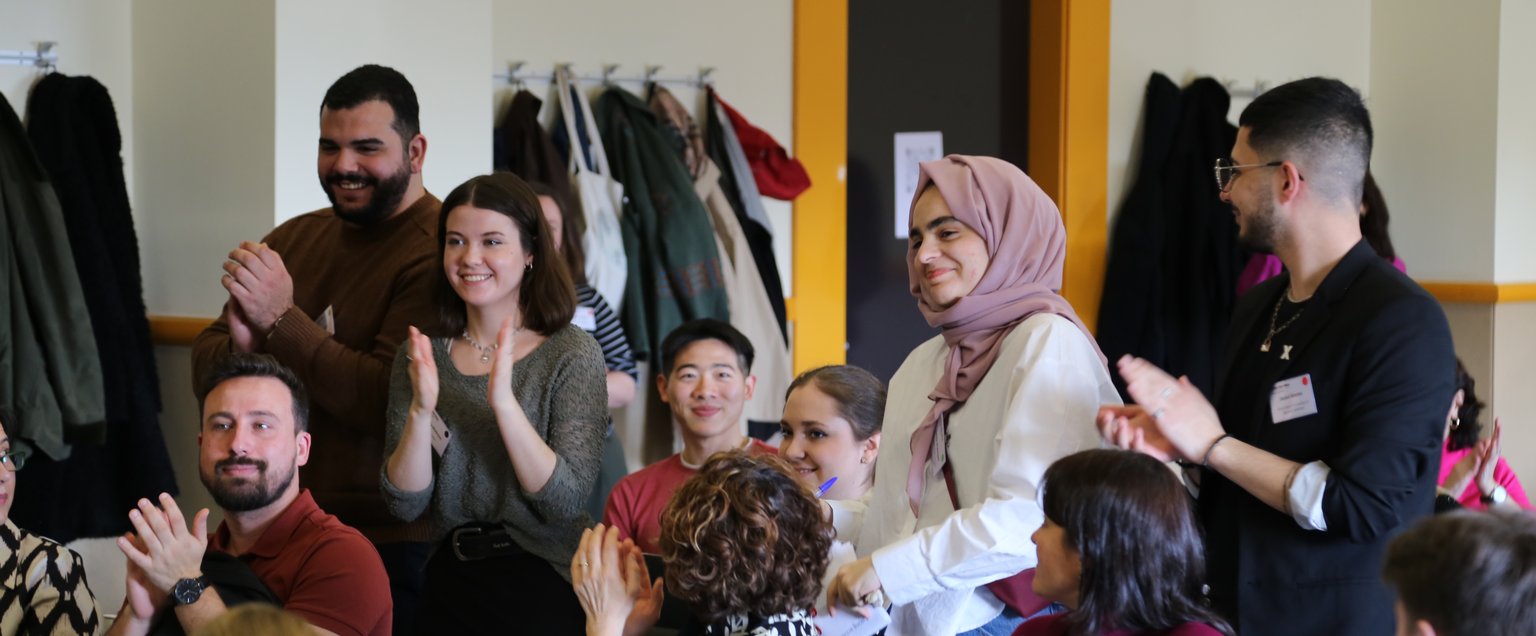March 21, 2024
—
What does it feel like to be 'different' and not to be accepted, to be excluded? Twenty-six young people from all over Europe share their personal experiences of prejudice and discrimination in the educational web tool Stories that Move.
Today, on the International Day Against Racism and Discrimination, we reflect on discrimination with Stories that Move. The stories have a hopeful message: even as single voice you can speak out and do something against discrimination.
International
Ten years ago, the Anne Frank House and major European partners teamed up to produce a free, multi-lingual web tool for schools to help combat discrimination. Now available in nine languages - English, Dutch, German, Spanish, Catalan, Hungarian, Polish, Slovak and Ukrainian - the digital toolbox helps teachers to discuss various forms of discrimination in their lessons. Based on 26 personal stories from peers, youngsters learn to think critically about subjects such as identity, prejudice, diversity and discrimination, and to reflect on their own position and choices.
Personal stories
The toolbox is built around the real stories of young people from all over Europe. The young people were motivated by their own experiences with discrimination to speak out and support other young people who experience the same problems. These are stories with a hopeful message: even as individual you can speak out and do something against discrimination.
- Amjad (Syria, Netherlands): ‘I grew up in a country where I wasn’t allowed to express my opinion and be myself. When I came to another country where I could express my opinions and be myself, I wanted to share my story - so others can learn from it.’
- Salma (Slovakia): ‘I wanted to share my story because I feel Muslim women, especially with a hijab, are not represented enough. I hope I can help other women to feel represented and maybe inspire them in some way. I feel that education is very important to develop in students the empathy towards minorities or people who are experiencing discrimination. It’s a good place to start.’
- Alyona (Ukraine): ‘Because of all the negative stereotypes of Roma people in our society and the fact that Roma often are treated poorly and discriminated against, many of us take the easy way out and keep our identity hidden. I represent the Roma community and our customs and traditions in the Ukrainian community. I think you should be proud of your identity as Roma and that you should show this.’
Teacher experiences
More than 10,000 teachers from all over Europe work with Stories that Move. What was their motivation and what were their experiences and those of their students with the toolbox? We asked three teachers.
- Debby (Netherlands): ‘Personally I sometimes find it a bit difficult to talk about complicated topics, such as discrimination, in class. Stories that Move however is a great way to talk about discrimination. It has real stories, so students feel engaged with the stories. It’s also a safe way for them because they don’t have to talk about their personal experiences. They can of course, but they don’t have to.’
- Adam (Poland): ‘I experience that the stories in Stories that Move touch my students, that they talk more easily about identity and discrimination and that they become more social and open-minded. The stories are moving and real; they tell us what the world looks like and what we need to do to make the world a better place.’
- Martina (Austria): ‘Discussing discrimination in class is relevant, classes are diverse. Students see that other young people their age have the same experiences and problems. The videos are close to the experiences and background of students. The language spoken is what young people use themselves. It’s also an easy tool for teachers to use, with ready-made materials.’
Curious about Stories that Move? Take a look and create an account:
